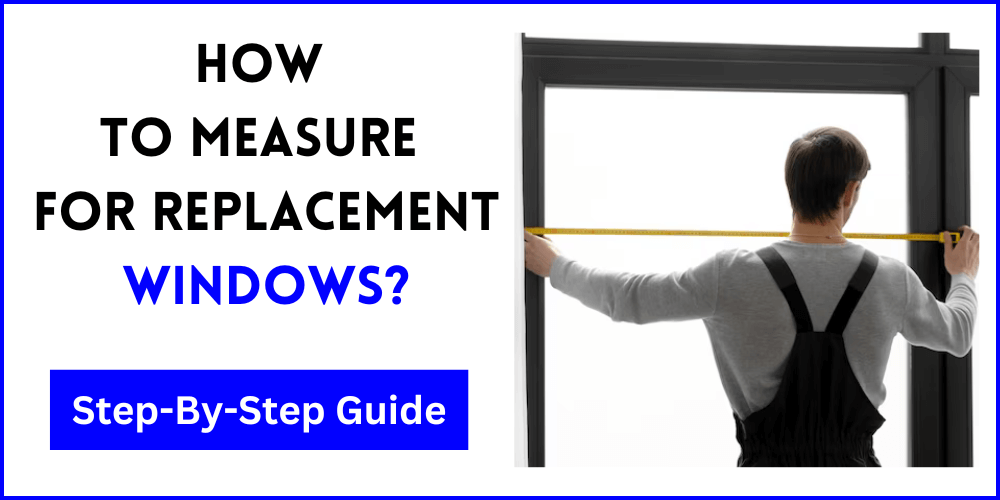
To provide natural light, ventilation, and a connection to the outside world, windows are essential in our homes. They also support a home’s general aesthetics and energy effectiveness. Yet, windows have a lifespan like any other part of a house. This article will examine the elements that affect how long windows last. The typical lifespan of window materials is the telltale sign that it’s time for replacement. The burning question: How often should windows be replaced?
How Often Should Windows Be Replaced?
Some variables affect the durability of windows and tell the importance of How often should windows be replaced. Making informed decisions about window replacement can be made easier for homeowners by being aware of these factors.
One of the most significant factors affecting window lifespan is the climate and weather conditions in your region. The resilience of windows can be affected by extreme temperatures. Exposure to direct sunlight, significant rainfall, and high humidity levels. In areas with severe weather, windows may experience more wear and tear.
Window Material
The type of material used for windows plays a crucial role in their lifespan. Wood, vinyl, aluminum, and fiberglass are typical window materials, each with its own benefits and drawbacks. While some materials may need more upkeep to ensure a longer lifespan, others may be more resilient to rot and weathering.
Quality of Installation
The quality of window installation is paramount. Poorly installed windows can lead to air and water leaks, which can shorten their lifespan. It’s essential to hire experienced professionals for window installation to ensure a proper and secure fit.
Maintenance and Care
Regular maintenance and care can extend the life of your windows. Cleaning, checking for damage, and, if required, applying sealants or coatings of protection are all included in this. Neglecting maintenance can lead to premature deterioration.
Typical Lifespan of Different Window Materials
Different window materials have varying lifespans. Here’s a general guideline for the typical lifespan of common window materials:
- Wood: Wooden windows can last 30 years or more with proper maintenance. However, they may be more susceptible to moisture-related issues in humid climates.
- Vinyl: Vinyl windows are known for their durability and low maintenance. They can last 20 to 40 years, depending on the quality of the vinyl.
- Aluminum: Aluminum windows are durable and resistant to rust and corrosion. They can have a lifespan of 20 to 30 years.
- Fiberglass: Fiberglass windows are known for their strength and longevity. They can last 30 to 50 years or more.
Signs That Windows Need Replacement
Knowing when it’s time to replace your windows is crucial. Here are some signs that state window replacement may be necessary:
- Drafts and Air Leaks
Feeling drafts or noticing air leaks around your windows, especially during windy weather, is a clear sign that your windows are no longer providing an effective seal.
- Condensation Between Panes
If you see condensation or fogging between the glass panes, it indicates a broken seal. This can compromise energy efficiency and insulation.
- Visible Damage
Visible damage such as rotting wood, cracked frames, or warped sashes is a clear sign. That your windows are deteriorating and need replacement.
- Rising Energy Bills
If your energy bills have been increasing, it may be due to inefficient windows. Replacing them with energy-efficient options can lead to cost savings over time.
Is it Worth Replacing 20-Year-Old Windows?
Several factors determine whether to replace windows that are 20 years old. Replacement and restoration of windows might not be required if they are still in good shape, have been well-maintained, and are energy-efficient. However, replacing older windows with newer, more energy-efficient ones can offer long-term advantages if they are signs of wear and tear, such as drafts or condensation.
When Should I Know It’s Time to Replace My Windows?
It’s time to consider window replacement when you experience any of the following:
- Your windows are more than 20-25 years old.
- You notice significant drafts or air leaks.
- Visible damage or deterioration is evident.
- Your energy bills have spiked.
- You’re seeking improved energy efficiency and comfort in your home.
What Happens If You Don’t Replace Old Windows?
Neglecting to replace old and deteriorating windows can have several consequences:
- Old windows may not provide adequate insulation. Leading to higher energy bills as your heating and cooling systems work harder.
- Drafts and air leaks can create discomfort by allowing outside temperatures to affect indoor comfort.
- Water leaks from damaged windows can lead to structural damage over time, causing more significant and costly repairs.
- Outdated or damaged windows can impact the curb appeal and appearance of your home.
Conclusion:
In conclusion, the frequency of window replacement depends on various factors like the window material, climate, maintenance, and signs of wear and tear. While well-maintained windows can last for decades. It’s essential to check their condition and consider replacement. When they no longer provide effective insulation, security, and energy efficiency.
Related Guide:



